MEDWAYCAP strengthens the Mediterranean Water Agenda through an empowered Alliance
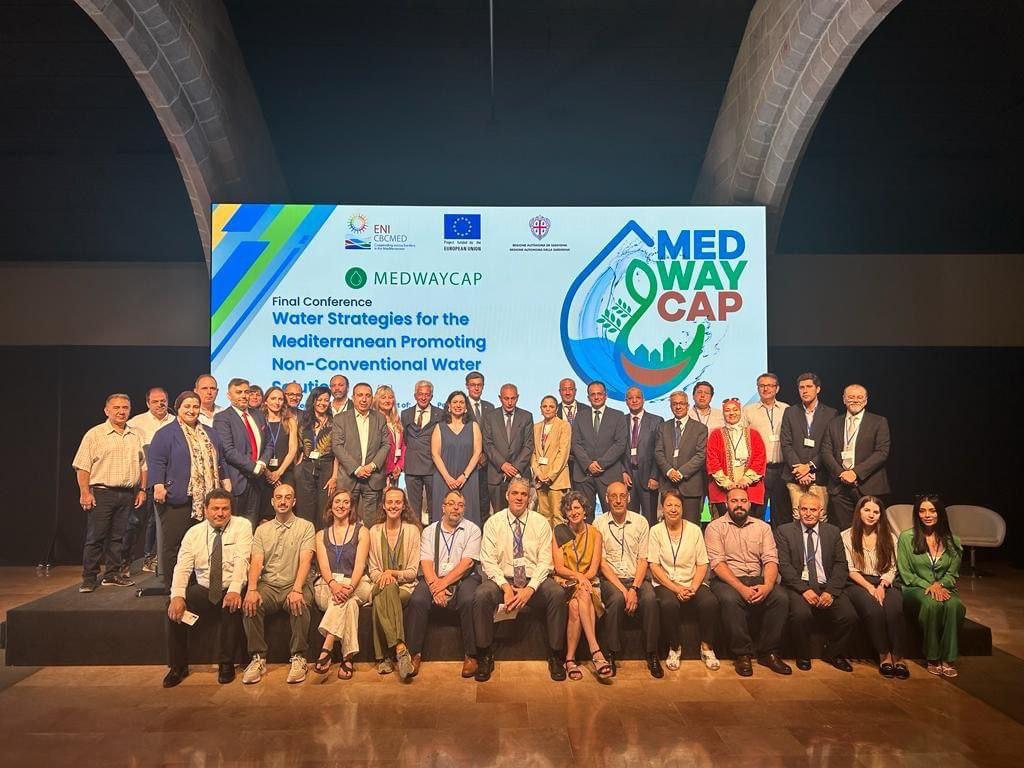
On the 10th and 11th of July 2023, the MEDWAYCAP partners held the final conference entitled “Water Strategies for the Mediterranean - Promoting Non-Conventional Water Solutions” at the Barcelona Chamber Building “La Llotja del Mar” in Spain and was organised by the Association of Mediterranean Chambers of Commerce and Industry - ASCAME and the Confederation of Egyptian European Business Associations - CEEBA jointly with all project partners in Barcelona. It was supported by the Union for the Mediterranean (UfM) and the PRIMA programme.
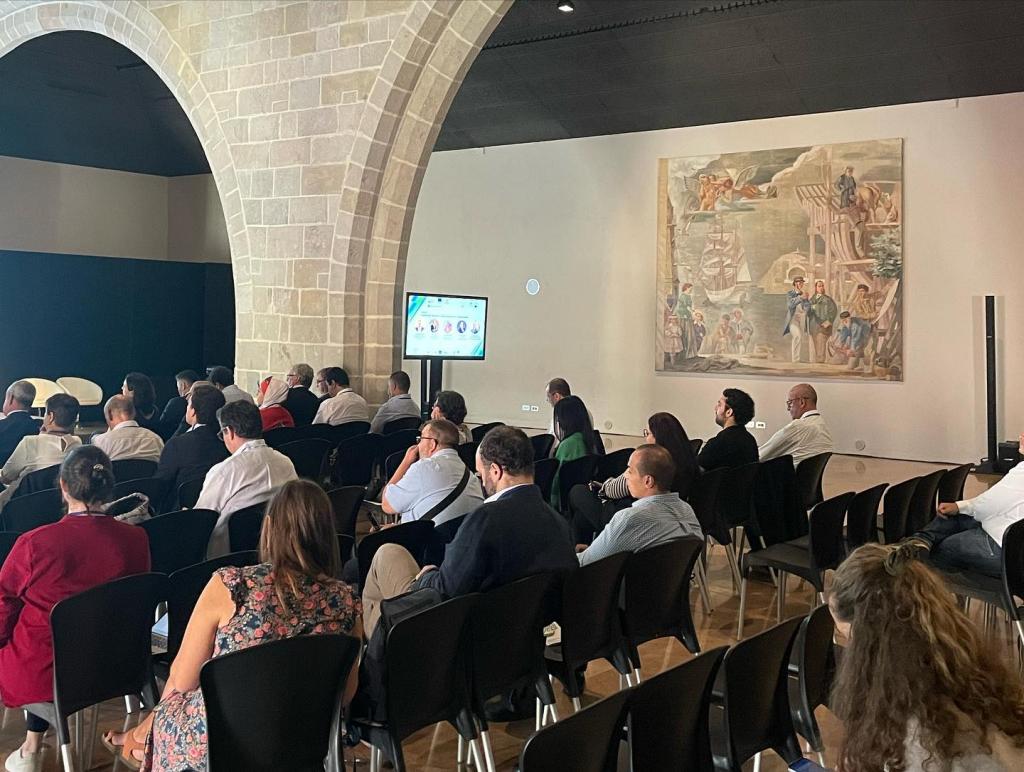
The event brought together many stakeholders, policy and technical experts and private sector representatives from Spain, Italy, Greece, Jordan, Egypt, Tunis, Cyprus, Portugal, Lebanon and Palestine to discuss best practices in non-conventional water (NCW) reuse and strategies for their scaling-up.
At the opening of the conference, keynote speakers highlighted the importance of sustainable water management for the Mediterranean region, which is severely affected by the impact of climate change on its water resources.
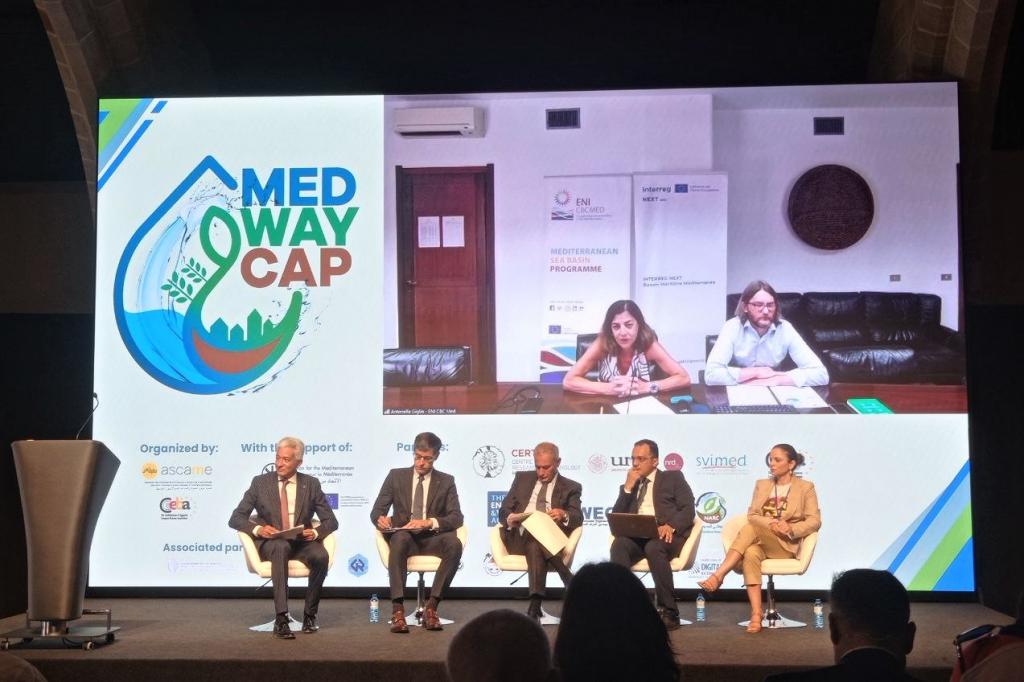
Ms. Antonella Giglio, Director at Managing Authority of ENI CBC MED programme, underlined the importance of MEDWAYCAP as one of the 6 water management projects of the ENI CBC MED programme, which promotes the use of NCW resources in the Mediterranean to meet future water needs, capitalising on the results of EU-funded projects, Union for the Mediterranean (UfM) projects and the PRIMA programme.
Dr Nasser Kamel, Secretary General of the Union for the Mediterranean (UfM), emphasised the urgency of using new approaches and technologies to preserve water in the Mediterranean, one of the world's most water-stressed regions, where nearly 250 million people could be at risk of water poverty in the next 25 years. He praised the project for its holistic approach to integrating NCW resources into water governance systems and related business opportunities.
Prof. Mohamed El-Shinawi, Co-Chair of the PRIMA programme, stressed the importance of close cooperation between academia and the private sector to commercialise research results and the need to disseminate best practices to provide end-users and decision-makers with the necessary tools to enhance water governance and focus on NCW resources.
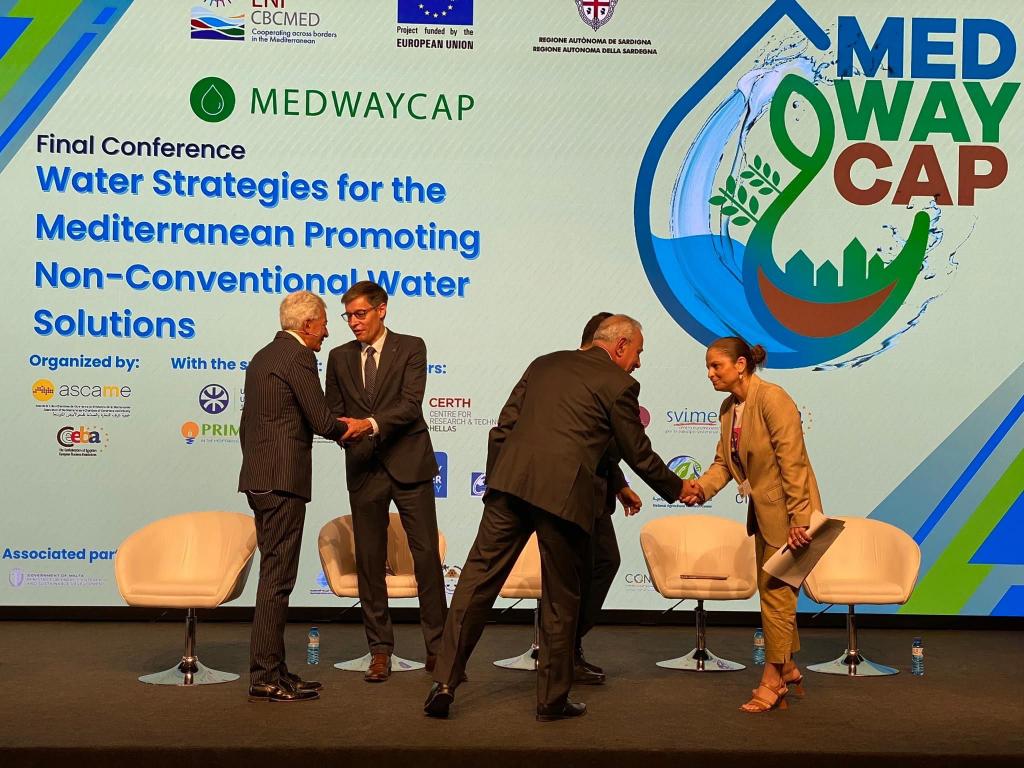
During the conference, Roula Khadra from CIHEAM-Bari in Italy, one of the project partners, officially launched the MEDWAYCAP Memorandum of Understanding (MoU), to enact an alliance for a long term capitalization strategy toward an urban-rural integrated development of NCW resourses at Mediterranean level.
This MoU at first approved and signed by partners and associate partners of MEDWAYCAP project, will be further endorsed by Mediterranean and pan Mediterranean players.
The strategic institutions participating in the final conference, such as UfM, PRIMA, Global Water Partnership MED (GWP MED), Euro-Mediterranean Information System on know-how in the Water sector (EMWIS/SEMIDE), Arab Water Council, Italian National Association of Land Reclamation (ANBI), expressed their interest in endorsing the MoU for a constructive alliance.
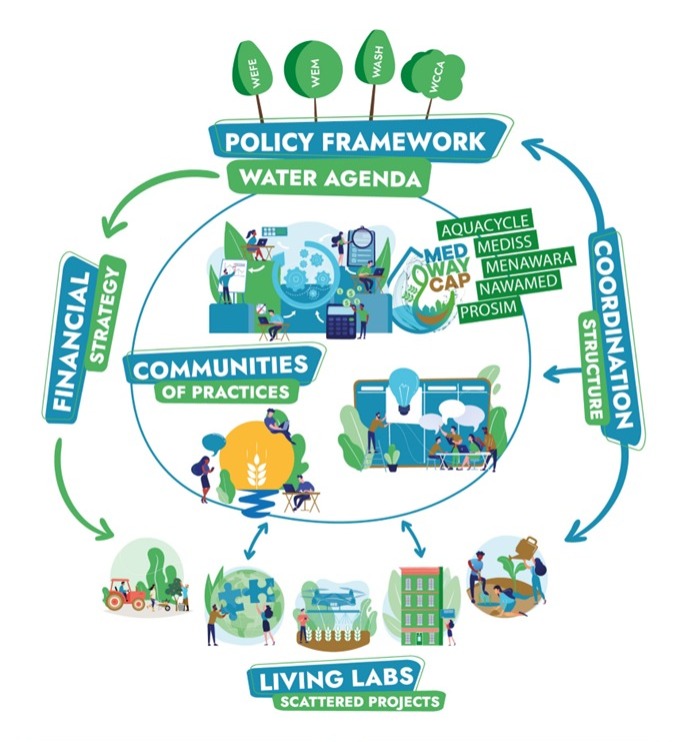
Throughout the event, the MEDWAYCAP project presented a variety of sessions, including a presentation on the MEDWAYCAP Best Practices Inventory Platform on NCW Use Technologies and Solutions, which identifies and benchmarks best practices suitable for different environments. The sessions on the “community of practices” approach and “upscaling projects' synergies” discussed the role that experts, stakeholders and project communities can play in influencing decision making at the policy level. Panellists discussed how these can act as catalysers for sustainable water management, becoming a link between the community of water experts and decision-makers, and supporting the dissemination of technologies developed by the private sector.
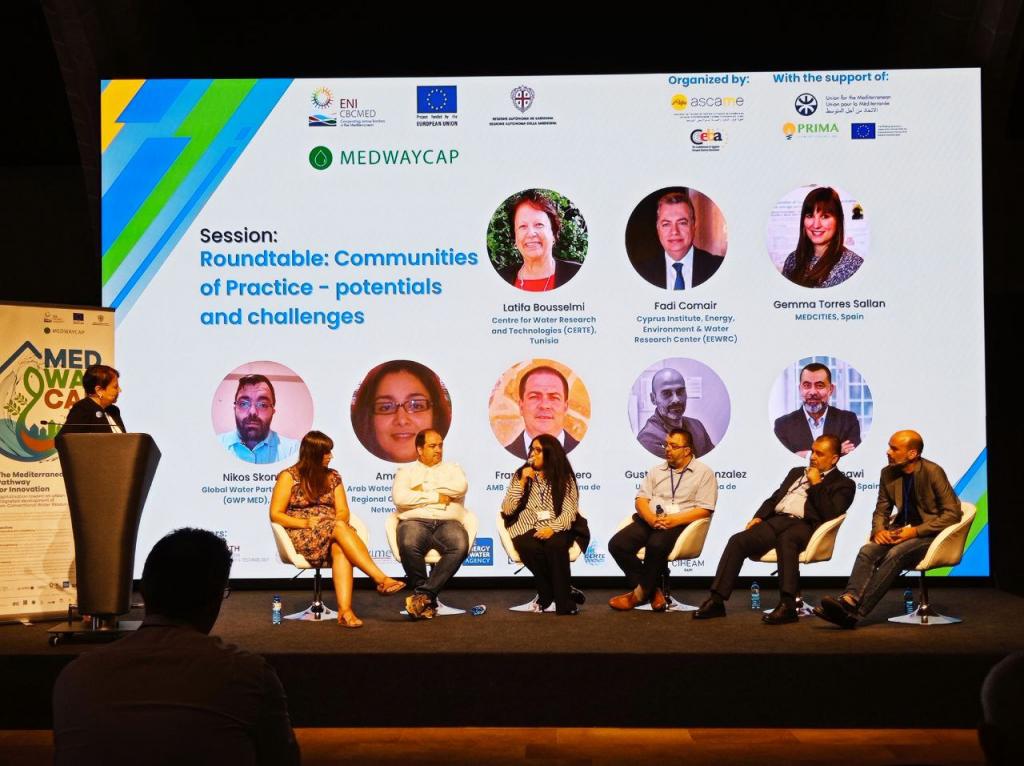
In the session dedicated to technologies and solutions for water management developed by business representatives of SMEs (small and medium enterprises) from Portugal, Palestine, Tunisia, Italy and Lebanon, panellists presented innovative technologies that are market-ready and, most importantly, feasible for their private and public sector clients, such as decentralised smart system sewage treatment solutions from Lebanon.
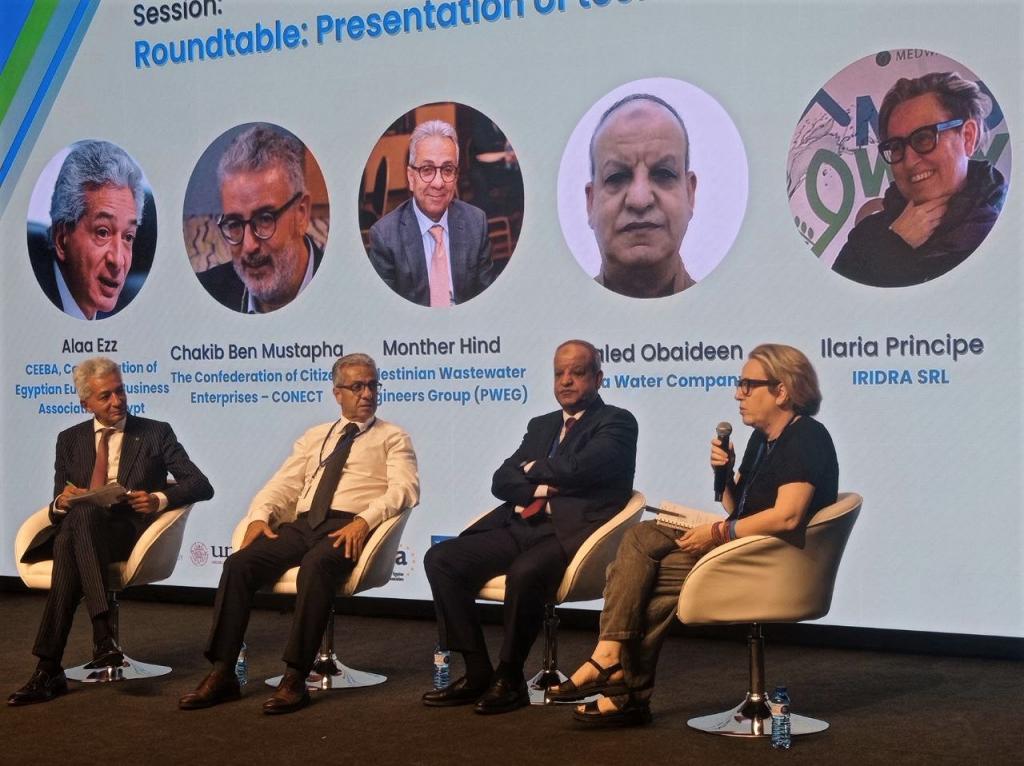
A Youth Forum on the second day showed the role that youth can play as agents of change in developing sustainable water management solutions and raising awareness of water management issues among residents of a region where 70% of the population is under the age of 30.
The two-day event provided a valuable platform for exchanging ideas, exploring potential partnerships and identifying new avenues for technology transfer and innovation in the sustainable water sector. The engaging discussions and productive networking sessions further solidified MEDWAYCAP's position as a catalyst for positive change and advancement in the Mediterranean water management landscape.









